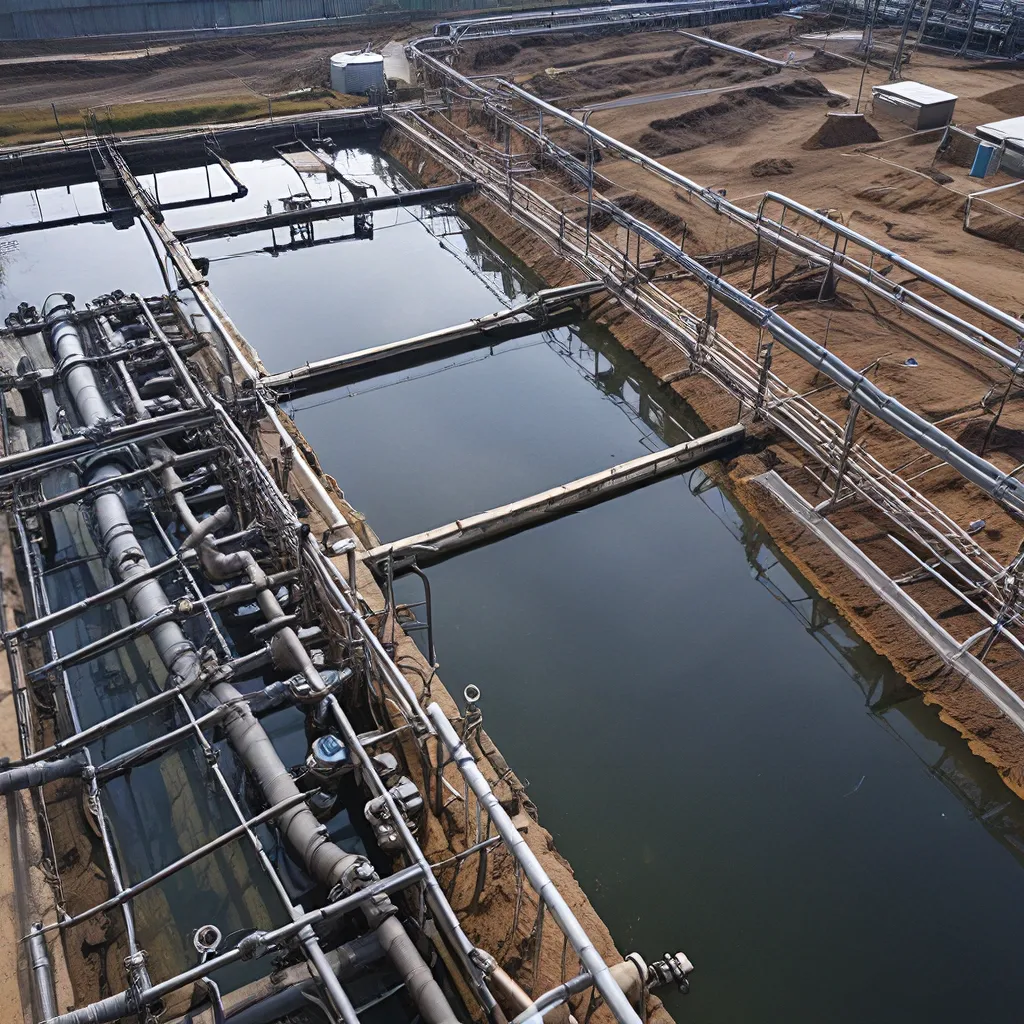
As I sit here contemplating the future of wastewater treatment, I can’t help but feel a sense of excitement and anticipation. The world of water management is on the cusp of a remarkable transformation, and artificial intelligence (AI) is playing a pivotal role in this revolution.
The Marriage of Wastewater Treatment and AI
Imagine a world where wastewater treatment facilities can make decisions with the precision and speed of a seasoned expert, yet the consistency and tirelessness of a machine. That’s the promise of AI-powered wastewater treatment, and it’s a future that’s rapidly becoming a reality.
I recently had the opportunity to tour one of our local wastewater treatment plants, and I was struck by the sheer complexity of the operation. Hundreds of data points, from flow rates to chemical levels, were constantly being monitored and adjusted to ensure the efficient processing of millions of gallons of wastewater every day. It was a dizzying display of human skill and coordination, but I couldn’t help but wonder, “How can AI take this to the next level?”
Empowering Decision-Making with AI
The answer lies in the incredible capabilities of machine learning and predictive analytics. By feeding vast troves of historical data into AI algorithms, wastewater treatment facilities can begin to identify patterns and trends that would be virtually impossible for human operators to detect. These insights can then be used to make more informed, proactive decisions about everything from chemical dosing to equipment maintenance.
Imagine a scenario where an AI system can predict an impending equipment failure before it even happens. Instead of waiting for a breakdown and scrambling to make repairs, the system could automatically schedule maintenance, order replacement parts, and even dispatch a technician – all while minimizing downtime and ensuring the continued smooth operation of the facility.
But the benefits of AI in wastewater treatment don’t stop there. These intelligent systems can also help optimize energy consumption, reduce chemical usage, and improve overall treatment efficiency. By constantly monitoring and adjusting process parameters in real-time, AI can help facilities adapt to changing conditions and ensure that resources are being used as efficiently as possible.
Alpha Wastewater, a leader in the field of wastewater treatment, is already leveraging the power of AI to transform their operations. Through the integration of advanced analytics and predictive modeling, they’re able to make more informed decisions, anticipate problems, and deliver better outcomes for their clients.
The Human Element: Enhancing, Not Replacing
But the integration of AI in wastewater treatment isn’t just about automating processes and replacing human decision-making. In fact, the most effective AI systems are those that augment and enhance the capabilities of human operators, rather than trying to replace them entirely.
After all, there’s still an irreplaceable human element in wastewater treatment – the intuition, the experience, and the problem-solving skills that can’t be easily replicated by a machine. AI should be seen as a collaborative partner, helping to surface insights and recommendations, but ultimately leaving the final decisions to the experts on the ground.
The Future is Bright, but Cautious
As exciting as the prospects of AI-powered wastewater treatment may be, it’s important to approach this technology with a healthy dose of caution and responsibility. After all, the decisions made by these systems can have far-reaching consequences, both for the environment and for the communities they serve.
That’s why transparency, accountability, and ethical considerations must be at the forefront of any AI implementation in the water management sector. We must ensure that these systems are rigorously tested, constantly monitored, and held to the highest standards of performance and safety.
Embracing the Future, Together
But I remain optimistic. The potential for AI to transform the world of wastewater treatment is simply too great to ignore. By working hand-in-hand with this technology, we can unlock new levels of efficiency, sustainability, and environmental stewardship – all while maintaining the human touch that has always been at the heart of this vital industry.
So let’s embrace the future, but let’s do it with wisdom, foresight, and a steadfast commitment to responsible innovation. The water that sustains our communities depends on it.